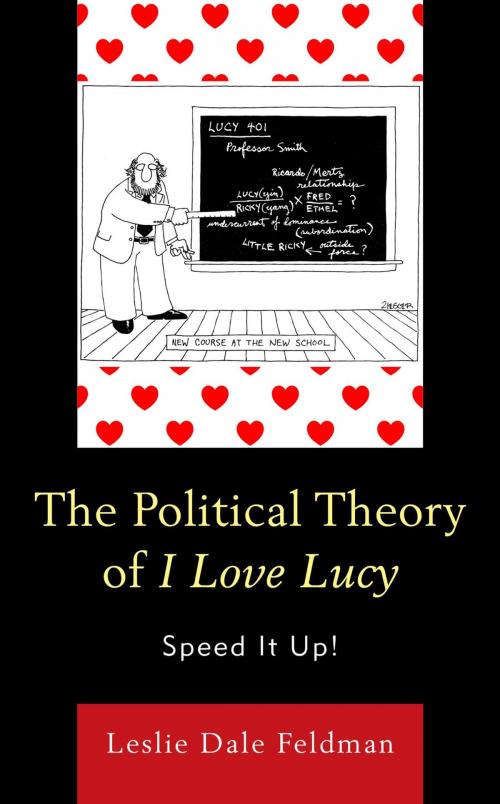The Political Theory of I Love Lucy
Speed It Up!
Nonfiction, Entertainment, Television, Performing Arts, Social & Cultural Studies, Political Science, Politics, History & Theory| Author: | Leslie Dale Feldman | ISBN: | 9781498541558 |
| Publisher: | Lexington Books | Publication: | January 18, 2019 |
| Imprint: | Lexington Books | Language: | English |
| Author: | Leslie Dale Feldman |
| ISBN: | 9781498541558 |
| Publisher: | Lexington Books |
| Publication: | January 18, 2019 |
| Imprint: | Lexington Books |
| Language: | English |
This book looks at how the classic television series fits into the cultural milieu of mid-century America. I Love Lucy incorporates key themes of the 1950s American political scene and classic American values of family, social mobility, community, individualism and work, keeping in mind that “Luck” as Machiavelli said “is the arbiter of half of what we do.”
As the beloved American TV queen, Lucy Ricardo is a psychologically complicated character, conflicted between her role as a 1950s housewife and her wish to be a star. She is an icon of social mobility, going from a small New York City apartment to a country house in a swanky suburb, and an example of the “transitional” woman who wants to have it all. Is she a feminist? Is she a conformist? Does she prefer the country to the city?
Whether she is working on the chocolate factory assembly line, baking bread, or achieving the American dream, Lucy is always “speeding it up!”
This book looks at how the classic television series fits into the cultural milieu of mid-century America. I Love Lucy incorporates key themes of the 1950s American political scene and classic American values of family, social mobility, community, individualism and work, keeping in mind that “Luck” as Machiavelli said “is the arbiter of half of what we do.”
As the beloved American TV queen, Lucy Ricardo is a psychologically complicated character, conflicted between her role as a 1950s housewife and her wish to be a star. She is an icon of social mobility, going from a small New York City apartment to a country house in a swanky suburb, and an example of the “transitional” woman who wants to have it all. Is she a feminist? Is she a conformist? Does she prefer the country to the city?
Whether she is working on the chocolate factory assembly line, baking bread, or achieving the American dream, Lucy is always “speeding it up!”















